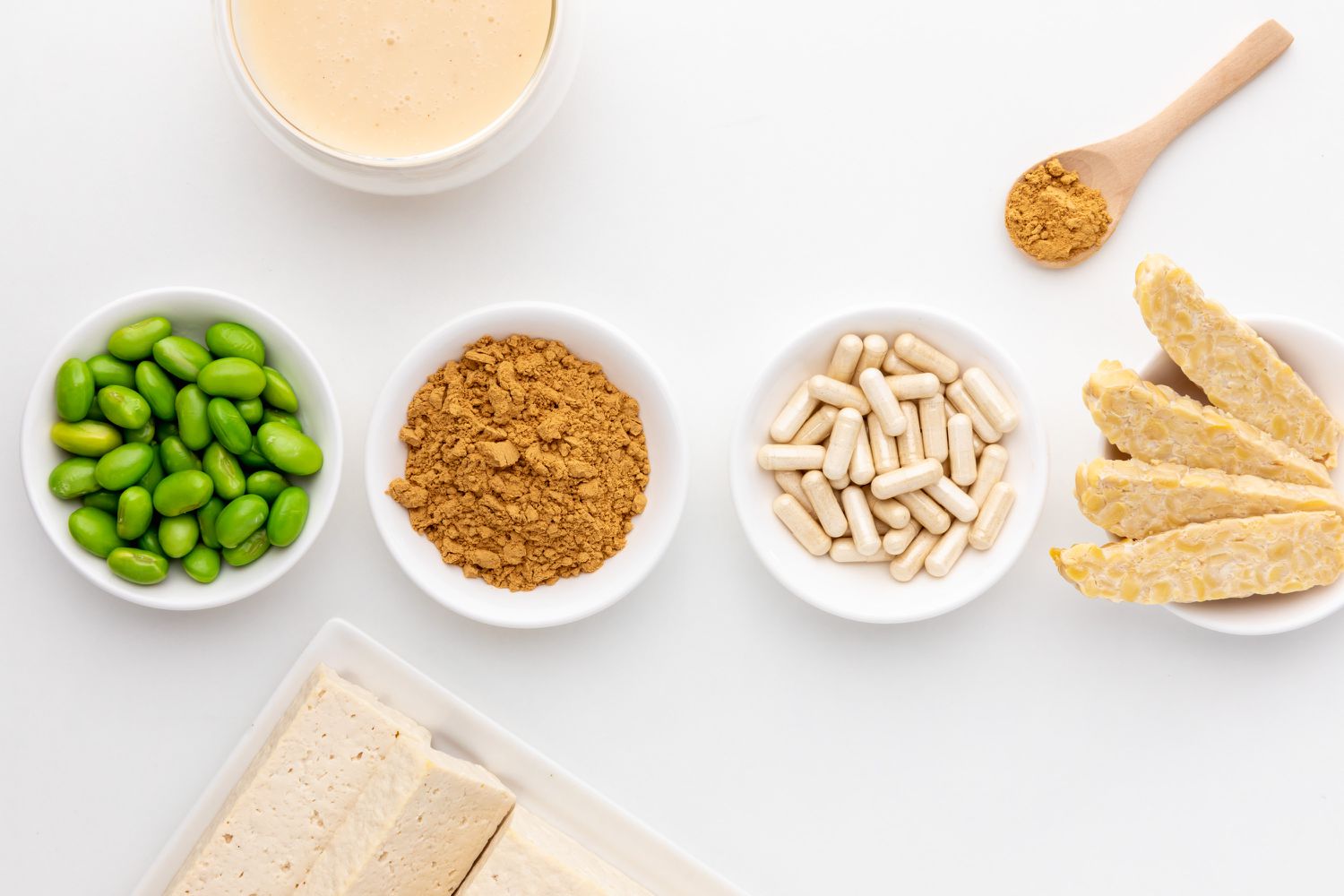
Isoflavones are natural compounds found in plants, especially soybeans. These powerful substances have gained attention for their potential health benefits. But what exactly are isoflavones, and why should you care? Isoflavones are a type of phytoestrogen, meaning they can mimic estrogen in the body. This can be both good and bad, depending on the situation. For instance, they may help reduce menopausal symptoms and improve bone health. On the flip side, too much might interfere with hormone balance. Curious about how these compounds work and what they can do for you? Let's dive into 31 fascinating facts about isoflavones that will shed light on their role in your diet and health.
What is Isoflavone?
Isoflavones are naturally occurring compounds found in plants, especially soybeans. They belong to a class of organic compounds known as phytoestrogens, which have estrogen-like effects in the body. Let's dive into some fascinating facts about isoflavones.
-
Isoflavones are primarily found in soybeans and soy products like tofu, tempeh, and soy milk.
-
They are also present in other legumes such as chickpeas, lentils, and beans, but in smaller amounts.
-
Isoflavones can mimic estrogen, a hormone that regulates many processes in the body.
-
The two main types of isoflavones in soy are genistein and daidzein.
Health Benefits of Isoflavones
Isoflavones have been studied for their potential health benefits. Here are some key points about their impact on health.
-
They may help reduce the risk of heart disease by improving blood vessel function and lowering cholesterol levels.
-
Isoflavones have antioxidant properties, which help protect cells from damage caused by free radicals.
-
They may alleviate menopausal symptoms such as hot flashes and night sweats.
-
Some studies suggest that isoflavones can improve bone health by increasing bone density.
-
They might reduce the risk of certain cancers, particularly breast and prostate cancer.
Isoflavones and Diet
Incorporating isoflavones into your diet can be beneficial. Here are some interesting facts about how to include them in your meals.
-
Fermented soy products like miso and natto have higher isoflavone content than non-fermented ones.
-
Cooking methods can affect isoflavone levels; boiling soybeans can reduce their isoflavone content.
-
Isoflavone supplements are available, but it's generally better to get them from whole foods.
-
Consuming a variety of soy products ensures a balanced intake of different isoflavones.
Isoflavones and Hormonal Balance
Isoflavones can influence hormonal balance in the body. Here are some insights into their effects.
-
They can bind to estrogen receptors, potentially balancing hormone levels in both men and women.
-
Isoflavones may help regulate menstrual cycles and reduce symptoms of PMS.
-
They might support thyroid function, although excessive intake could interfere with thyroid hormones.
-
Some research indicates that isoflavones can improve fertility in women by enhancing ovarian function.
Isoflavones and Skin Health
Isoflavones are also known for their benefits to skin health. Here are some facts about their impact on the skin.
-
They can improve skin elasticity and reduce the appearance of wrinkles.
-
Isoflavones have anti-inflammatory properties that can help soothe irritated skin.
-
They might protect the skin from UV damage and reduce the risk of skin cancer.
-
Some skincare products contain isoflavones for their anti-aging benefits.
Isoflavones and Weight Management
Isoflavones might play a role in weight management. Here are some points to consider.
-
They can help regulate metabolism and support weight loss efforts.
-
Isoflavones may reduce fat accumulation by influencing fat cell development.
-
They might improve insulin sensitivity, which can aid in weight management.
-
Including isoflavone-rich foods in your diet can promote a feeling of fullness and reduce overeating.
Potential Side Effects of Isoflavones
While isoflavones offer many benefits, they can also have some side effects. Here are a few things to keep in mind.
-
High doses of isoflavones might interfere with thyroid function, especially in people with thyroid disorders.
-
Some individuals may experience digestive issues like bloating and gas when consuming large amounts of soy products.
-
Isoflavones can interact with certain medications, so it's important to consult a healthcare provider before taking supplements.
-
Excessive intake of isoflavones might affect hormone levels, potentially leading to imbalances.
Fun Facts about Isoflavones
Let's wrap up with some fun and lesser-known facts about isoflavones.
-
Isoflavones were first discovered in the 1930s by scientists studying the effects of plant compounds on animal health.
-
They are also found in red clover, a plant often used in herbal medicine for its health benefits.
Final Thoughts on Isoflavones
Isoflavones pack a punch when it comes to health benefits. These plant compounds, found in soybeans and other legumes, can help reduce the risk of heart disease, improve bone health, and even alleviate menopausal symptoms. They act as antioxidants, fighting off harmful free radicals in your body. Including isoflavone-rich foods in your diet can be a game-changer for your overall well-being.
Remember, balance is key. While isoflavones offer numerous benefits, moderation is important. Too much of anything can have downsides. So, enjoy soy products like tofu, tempeh, and edamame in reasonable amounts.
Incorporating isoflavones into your diet doesn't have to be complicated. Simple swaps like using soy milk instead of regular milk or adding tofu to your stir-fry can make a big difference. Stay informed, eat smart, and reap the benefits of these powerful compounds.
Was this page helpful?
Our commitment to delivering trustworthy and engaging content is at the heart of what we do. Each fact on our site is contributed by real users like you, bringing a wealth of diverse insights and information. To ensure the highest standards of accuracy and reliability, our dedicated editors meticulously review each submission. This process guarantees that the facts we share are not only fascinating but also credible. Trust in our commitment to quality and authenticity as you explore and learn with us.
